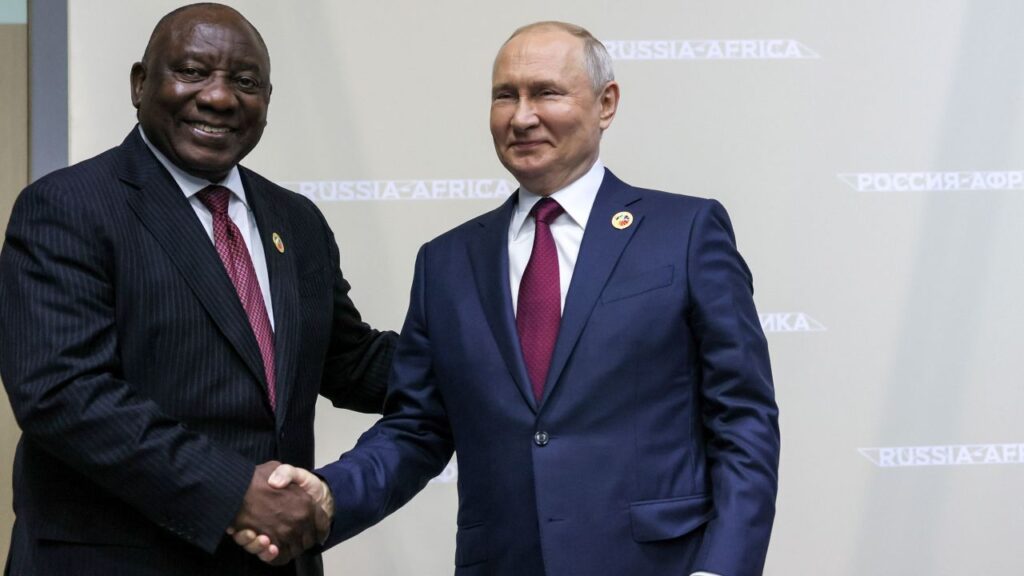The withdrawal of Russia from the Black Sea Grain Initiative has garnered sympathy from African leaders. On Wednesday, President Cyril Ramaphosa, in a joint statement with the seven African peace initiative leaders called for “specific steps to remove obstacles to Russian grain and fertiliser exports, thus allowing the resumption of the full implementation of the Black Sea package initiative of the United Nations Secretary-General as endorsed on 22 July 2022 in Istanbul.
The statement was issued in response to Russia’s recent withdrawal from the Black Sea Grain Initiative. The decision has sparked concerns over its potential impact on food prices in Africa, as the Black Sea region plays a crucial role in the global grain market.
Russia’s Withdrawal from the Black Sea Grain Initiative
The initiative was established to promote cooperation and ensure the efficient flow of grain from the Black Sea countries, which include Russia, Ukraine, and Kazakhstan.
The Black Sea region is known for its significant grain production capacity, and disruptions in this area can have far-reaching consequences on global food supply chains, affecting countries far beyond the region itself.
Sympathies from African Nations
Several African nations, including South Africa, have expressed their understanding and sympathy towards Russia’s decision to withdraw from the Black Sea Grain Initiative. These nations recognize the complexities and challenges Russia faces amid geopolitical tensions and internal pressures.
Leaders from African countries have emphasised the importance of dialogue and cooperation in resolving regional issues, particularly as Africa heavily relies on grain imports from international markets like the Black Sea region.
Impact on Africa’s Food Prices
The withdrawal of Russia from the Black Sea Grain Initiative has raised concerns about food prices in Africa. The Black Sea region has been a significant supplier of wheat, corn, and barley to African countries, and any disruption in grain trade from this area could lead to price volatility and supply uncertainties in the African market.
Africa, like many other regions, depends on stable and affordable grain supplies to meet its growing food demand and address food security challenges. A disruption in grain availability or a surge in prices could have severe implications for vulnerable populations and exacerbate existing food crises in certain parts of the continent.
Seeking Alternatives and Diversification
As the impact of Russia’s withdrawal unfolds, African nations are actively exploring alternative sources for their grain needs and diversifying their import options. Some countries are looking to bolster trade relations with other major grain-exporting nations, including those in South America, North America, and Europe, to mitigate potential shortages and price fluctuations.
African leaders are also calling for increased investment in domestic agriculture and agribusiness to bolster local production capabilities and reduce reliance on international grain markets. By promoting food self-sufficiency and agricultural development, African nations aim to enhance food security and resilience against external supply shocks.
Global Cooperation and Stability
The complex situation in the Black Sea region underscores the importance of global cooperation in maintaining stability in grain markets and ensuring food security for all nations. The current Geopolitical tensions have clearly had far-reaching consequences on food availability and affordability, especially in Africa, making it imperative for nations to foster peaceful resolutions and maintain open channels of communication.
